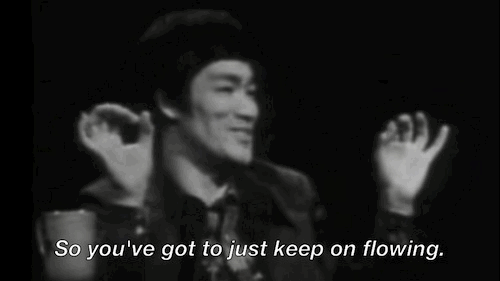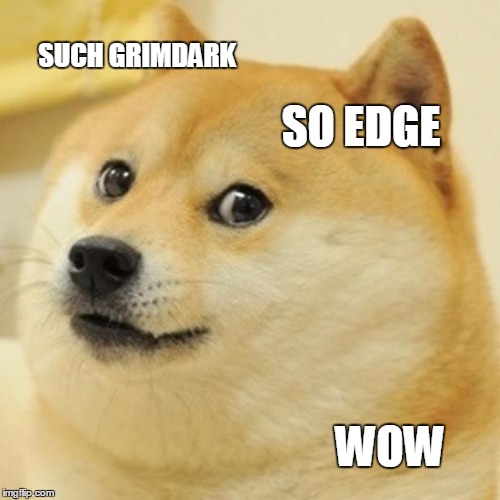I have very mixed feelings about David Eddings as an author. Some of his books rank among my very favourites; some of his books make me wonder why I ever liked him at all. Even in his best books there are numerous flaws and a google search of 'David Eddings hack' will quickly pull up many complaints on that score. If you read The Rivan Codex and judge him by his own words, calling him a hack is far from unjustified.
Yet I still re-read his books. I'll still go out to bat for him as an enjoyable author and one worth learning from.
And that's what I'm going to do right now because I just re-read Pawn of Prophecy and its review time.
Well. Bat for at times.
See, Pawn of Prophecy is the first of a five book series about a Farm Boy who turns out to be the Chosen One and with the aid of the Magical McGuffin, defeats the Dark Lord and Saves The World. And there's not an awful lot I can say about that other than maybe, just maybe, that wasn't as horribly cliche in 1982. In 2016 however, that's a point of historical curiousity, not something that will save your reading experience if you're so over that type of cliched fantasy. I'm okay with it - in fact, I'd hold there's a shortage of farm boys these days, not that I plan to correct this - but it is inescapably as cliched a premise as ever made it big in fantasy. Which in itself makes the book worthy of study if you ask me.
The book starts with our proto-Chosen One, Garion, growing up on a farm with his aunt Pol. Garion's childhood is covered in extensive detail before the outside world intrudes on both his life and the plot. At which point he goes out into the night on a harum-scarum quest that will drag him halfway across the continent, put him in mortal danger, see him meet the great and mighty and start to discover the hidden truth about the world. All in one 104,000 word book!
 |
| I do sometimes imagine Garion looking like this |
Take a moment to digest that word count. To put it into perspective, Sword of Shannara weighs in at 265k words. The Eye of the World beats that at 285k words. I can't find one for Feist's Magician but given it was released in many markets as two books and the paperback is 864 pages long and it quickly becomes apparent that by the standard of blockbuster debuts of the time, Pawn of Prophecy is teeny-tiny.
Part of the reason is that the book only follows Garion, rather than multiple PoVs. The greater part of the reason is that Eddings really gets the story chugging along without too much complications. For many, that is part of the charm; straight forwards and inviting to the reader. For others, the lack of depth is off-putting, more suitable for teenagers. I'm in Crowd A. Sometimes that's what I want and I wish that more brave souls in the fantasy genre had followed suit and wrote fast-paced epics. Anyone who wishes to follow suit could do worse than read Pawn of Prophecy. Not everything has to be slower than Doom Metal on Ketamine.
 |
| Epic Fantasy's Spiritual Sibling: Doom Metal |
No one cares if the plot is pacey and the prose is reader friendly if its all about dull stuff though. Given the heavy emphasis I laid earlier on just how cliche this is, one might worry about whether the ideas are interesting enough to hold up. It is a bit hit and miss. No one will ever read Eddings for the deep and innovative world making; no one will do so for the "Oh My Sweet Jesus" plot twists. The characters? At one point, re-reading it with far better genre knowledge than I had the first time, I actually exclaimed out loud "That's Fahfrd and the Grey Mouser!" Originality is not really Eddings' strong point.
Nevertheless, it is interesting. He puts just enough twist of his own on things. He's very good at making sure the good guys are liked and the bad guys are disliked. There's always something happening and its usually easy to imagine. In retrospect, he's possibly the greatest script writer the WWF never had. Arguably, it takes a lot of talent to make heavy use of straight up cliches interesting. It certainly takes something and whatever it is, Eddings had it.
What makes Eddings really stand out for me however is his levity. Long before I ever read Pratchett, David Eddings taught me that saving the world didn't have to be a po-faced business. People joke frequently in Pawn of Prophecy, none more so than the narrator. There's no shortage of authors these days who treat fantasy with a heavy dose of irreverence but Eddings remains a master of the art. His light hearted voice is a huge part of what makes this book so entertaining.
And at his peak, Eddings is near as fine an entertainer as ever worked in the genre. Its a shame his imagination never matched his facility for entertainment, as history is likely to forget him, but as long as people read him there will be readers having fun. He's the pop music of fantasy, the cheese, the Hollywood blockbusters. Pawn of Prophecy is, like so many debuts, not the strongest example of an author's work, but definitely one of the most charming. Given that Eddings' readability lies entirely in just how charming you find his wry take on straight up genre fantasy, that's a good thing.
There are two things in Pawn of Prophecy that must be brought up before ending this review. I'll start with the negative.
Eddings' penchant for racial stereotypes is a wee bit jarring. Let it be stated that the man did call himself out on it and make a concerted effort to show everyone's point of view as the series goes on, but that doesn't change the fact that nigh universally, someone from X Culture will have Y Characteristic. Its not just the bad guys either, its everyone. Its far less prevalent in later works so I don't think its a case of Eddings holding unfortunate views but at the very least, its shockingly lazy writing. I do not find it book spoiling, but Caveat Emptor.
The positive however is Aunt Pol. We all know what a true fantasy mentor looks like; an old git with beard, staff and seven sets of "I Heart Gandalf" pyjamas, one for each day of the week. Needless to say, Eddings has one of these, but our old wizard is not the true mentor. Oh, he's a mentor, but the true mentor is Aunt Pol. In fact Pol - or Polgara, to use her proper name - is arguably the true hero of the piece, the Samwise Gamgee of the Belgariad.
Now, there's a fair few female Main Characters these days. Plenty of kickass love interests. Plenty of dangerous friends, dangerouser enemies, and Guns of the Navaronne-esque frenemies. But major female mentors are difficult to think of. Highly maternal major female characters are even rarer, possible because conceiving a Chosen One is the most dangerous thing in all fiction. Characters that are both? I am really struggling to think of any other than Isana in the Codex Alera. Polgara's position in the book is as if JK Rowling decided to roll Molly Weasley and McGonagall into one character who then crisply informed Dumbledore to stay out of the way as she had a boy to raise and a world to save.
 |
| Who doesn't want more characters like this? |
As far as I'm concerned, over thirty years down the line Polgara remains an incredibly important character in fantasy's over all canon. She is still one of the best representations of a universal archetype in the genre. She's also an entertaining character in her own right; her interactions with Garion are frequently the best bits of Pawn of Prophecy and the many sequels. I'd recommend reading the book just for those and Polgara will stand as one of the best creations of Eddings and his wife Leigh (later credited as a co-author).
Of course, I recommend reading Pawn of Prophecy in general. I don't recommend it to everyone; hopefully the review has allowed people to recognise whether they'll like it or not. That is the point of a review after all. But to those who like some fantasy that's light-hearted and fun, and are not too bothered if the shape feels very familiar, here is a book that is likely to become a friend - if it is not already. After all, it's been around for thirty four years by now.
Thirty four years and still relevant. Not bad for a hack.















